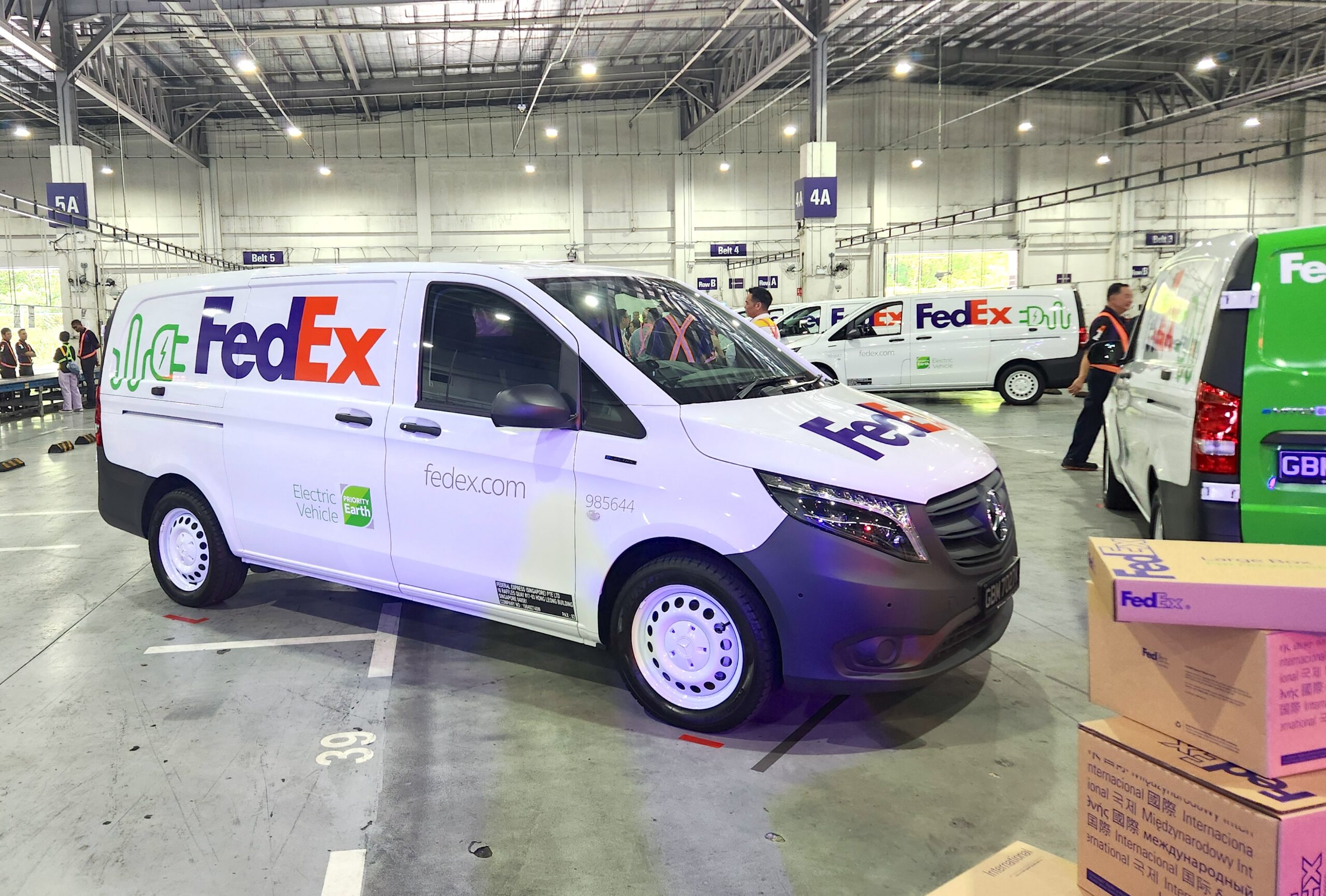LOGISTICS and transportation giant FedEx Express (FedEx) launched the first electric vehicles (EV) for its delivery fleet in Singapore on Friday (Nov 22).
The 31 new Mercedes-Benz eVito 112 vans replace older diesel vans, and now form about a fifth of FedEx’s 141-vehicle Singapore parcel-delivery fleet.
FedEx Singapore intends for its fleet to eventually be 100 per cent electric, said managing director Eric Tan, without specifying a timeline.
Asked why FedEx has only now adopted EVs, he said the company has a phased approach, waiting for existing diesel vehicles to reach the end of their lives before replacing them with EVs.
The new vans will make parcel deliveries from FedEx’s facility in the Airport Logistics Park to the rest of Singapore. Compared with the diesel models they replace, the EVs will save around 148 tonnes of tailpipe emissions a year.
As FedEx’s charging partner, Shell will install the infrastructure necessary for up to 150 charging points at FedEx’s facility, in preparation for the adoption of more EVs.
BT in your inbox

Start and end each day with the latest news stories and analyses delivered straight to your inbox.
The vans were purchased from Mercedes-Benz dealer Cycle & Carriage. This is in contrast to FedEx’s rival DHL, which has operated some 90 fully electric delivery vehicles since 2022, but leases most of them.
FedEx declined to comment on the cost of the vehicles.
Kawal Preet, president of FedEx Asia-Pacific, said the purchase is part of the company’s continuing efforts to adopt EVs in the region, in pursuit of its goal for net-zero carbon emissions by 2040.
By 2030, all the company’s new vehicle purchases worldwide for its delivery fleet will be electric, she added.
In the Asia-Pacific, FedEx has begun adopting EVs into its delivery fleets in China, Japan, Malaysia, New Zealand and Thailand. In China, for instance, almost 20 per cent of its vehicle fleet is electric. It operates 634 EVs out of a total of around 7,600 delivery fleet vehicles in the region.
Since Singapore’s introduction of incentives for fully electric light commercial vehicles in 2021, adoption has risen. For the first three quarters of 2024, around 44 per cent of newly registered light commercial vehicles were EVs.












